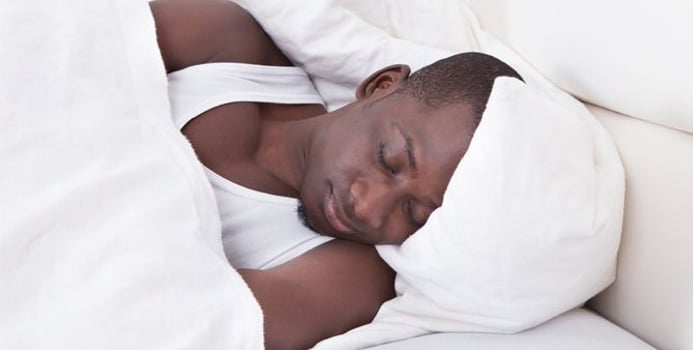When it comes to your weight, can you lose if you snooze? The answer is complicated, but getting enough sleep will definitely work to your advantage when it comes to maintaining a healthy lifestyle.
Why Did I Eat That?
We all know that when we are sleep deprived, we don't always make the best decisions. Lack of sleep dulls the activity in the area of the brain that is responsible for decision-making and impulse control. You don't have the mental capacity to make smart choices when you are sleepy. At the same time that the frontal lobe is being dulled, your sleepiness is amping up the "reward" center. You brain starts telling you to look for something that feels good like a piece of double chocolate cake. Research has shown that sleep deprived people tend to have more late night snacking of larger portions of high carbohydrate foods than people who sleep like a log every night.
Metabolic Mayhem
You might think that when you are awake for more hours, your body will be burning more calories, but that is not the case. A sleep-deprived body is usually low on energy. Not only are you less active and motivated to exercise, but you are hungrier because your body needs food energy to stay awake. You eat more and move less. And since your body builds muscle and repairs tissue while you sleep, less sleep equals less time for muscle repair and growth. Why is this an issue? The more muscle your body has, the more metabolically active it is and the more efficient it burns calories. Sleepless nights turn your body from a highly efficient energy furnace to a smoldering energy campfire.
Hormone Havoc
In addition, research has shown that when we don't get enough sleep, we throw our hormones out of whack. The appetite hormones, ghrelin and leptin, are impacted greatly from a lack of sleep. Ghrelin tells your body when it is time to eat, while leptin tells your body when it is time to stop eating. When you fail to get enough sleep, your body produces more ghrelin and less leptin so you eat more because your body thinks it needs it and it doesn't know when to stop.
Another hormone that is affected by too many late nights is cortisol, which is commonly known as the stress hormone. If your body is under stress, it will signal your brain to conserve energy and hold onto your fat stores. Cortisol levels spike with a lack of sleep resulting in a heightened stress level for your body.
But the biggest affect of sleep deprivation on your body and your weight comes from the disruption in your body's ability to process insulin. The hormone insulin is needed to change sugars, starches and other foods into energy that your body can use. If your body can't breakdown and process food from your bloodstream, it is more likely to get stored as fat. To make matters worse, insulin promotes the release of leptin so a disruption in insulin leads to less leptin and a decreased ability to know when to walk away from the refrigerator.
It is clear that getting enough sleep will not help you drop 10 pounds over night, but a prolonged lack of sleep will definitely hinder your weight loss and maintenance and could even cause you to gain a few pounds. So turn off your electronic devices at least an hour before hitting the sack, create a bedtime routine, stick to "wake up" schedule and turn the lights off to ensure that you have a restful 8 hours and hence, a healthier and happier life.

Joanne Perez, MS, RDN, LD is a Savannah-based dietitian who, after 20 years of food service and clinical dietetics, made the switch to nutrition communications and all things tech. She doesn't believe in diets and thinks that life is too short to be anything but happy and healthy at any weight. Read her blog, Real Bite Nutrition, and follow her on Twitter and Facebook.



